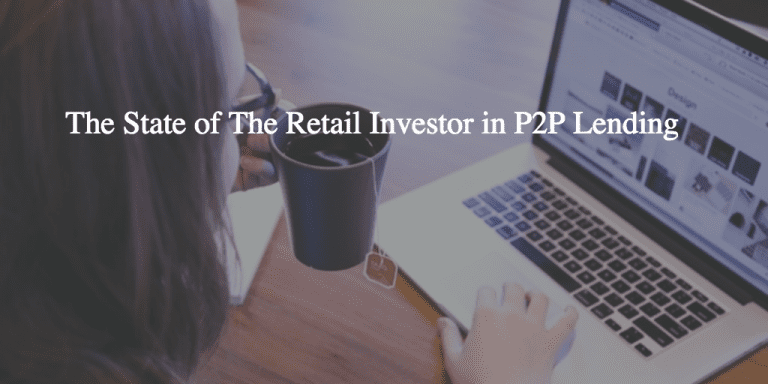
Over the last year there have been many developments for retail investors in p2p lending. This is a trend I expect to continue throughout 2016 as investors have more options to access marketplace lending and real estate crowdfunding. Most notable has been the maturing of the third party tools and new investment options in the form of Regulation A+ deals over the last year. In this post, we’ll review the state of the retail investor in p2p lending.
Lending Club and Prosper remain the only options for retail investors to invest in unsecured loans. Many investors prefer to use third party tools to direct their investments with these platforms. Some of these tools have stopped operations altogether while others have merged. We last reported on all of the third party tools in February of 2015. Here is a breakdown of the major news stories that feature the main tools still in operation for retail investors:
- Lend Academy Investments merged with Nickel Steamroller to form NSR Invest to focus on individual investors and financial advisors.
- BlueVestment is in the process of completing a merger with InterestRadar
With the consolidation that has occurred, this has left four main players in the third party tools space for retail investors:
Many investors use these tools for their additional layer of credit modeling on top of Lending Club and Prosper’s underwriting. P2P-Picks, a popular credit model service closed in 2015 due to the founder taking a position at another firm in our industry. This led to several of the platforms listed above offering a P2P-Picks style credit model to their investors.
In August, 2015 Lending Club announced an opportunity for further integration with third parties with the introduction of Lending Club Open Integration (LCOI). This has allowed investors to create Lending Club accounts directly with a third party, such as the ones listed above. Lastly FOLIOfn released an official API to allow for automated trading on the secondary market. This is an important step to improve liquidity when investing in p2p lending and many retail investors were excited about this announcement.
Lending Club made progress in opening up their platform to more states throughout 2015. Investors from 43 states (plus DC) are eligible to invest on Lending Club. Prosper is currently available to investors in 30 states (plus DC).
New Investment Options Announced in 2015
Two real estate crowdfunding platforms launched with Regulation A+ deals in 2015. GROUNDFLOOR was the first to launch their offering and currently offers lending in select states. Fundrise took a different approach when they announced the first ever eREIT to easily diversify investors in multiple projects. Having initially announced their Income eREIT, Fundrise recently announced their Growth eREIT to target a different types of investments.
It was nice to see these new opportunities for retail investors and they seemed to be well received by the retail investor community. There may be other companies who announce similar Regulation A+ deals, but it’s clear that GROUNDFLOOR and Fundrise are blazing new trails in this area. We expect at least one Regulation A+ deal to launch in a different lending vertical in 2016. For the time being, these Regulation A+ deals are the only way for retail investors to diversify into other categories, but we may see that change in 2016 with the introduction of closed end funds.
We first reported about closed end funds in July 2015 with Van Eck Overland and more recently with Direct Lending Investments seeking to convert to a 40-Act fund. There are several others who are in process, but it remains to be seen who will be the first fund to launch. These funds will have a substantial impact on access to the asset class for retail investors, but there appears to be significant regulatory hurdles for these funds to overcome.
While there have been many developments over the last year for retail investors there is still a lot of progress to be made. Retail investors still don’t have access to many of the lending verticals that institutional investors do and hopefully there will be progress on this in the next year. We continue to follow these developments closely and will report any new options here on Lend Academy.
What do you think 2016 will bring for retail investor participation? Let us know in the comments below.


